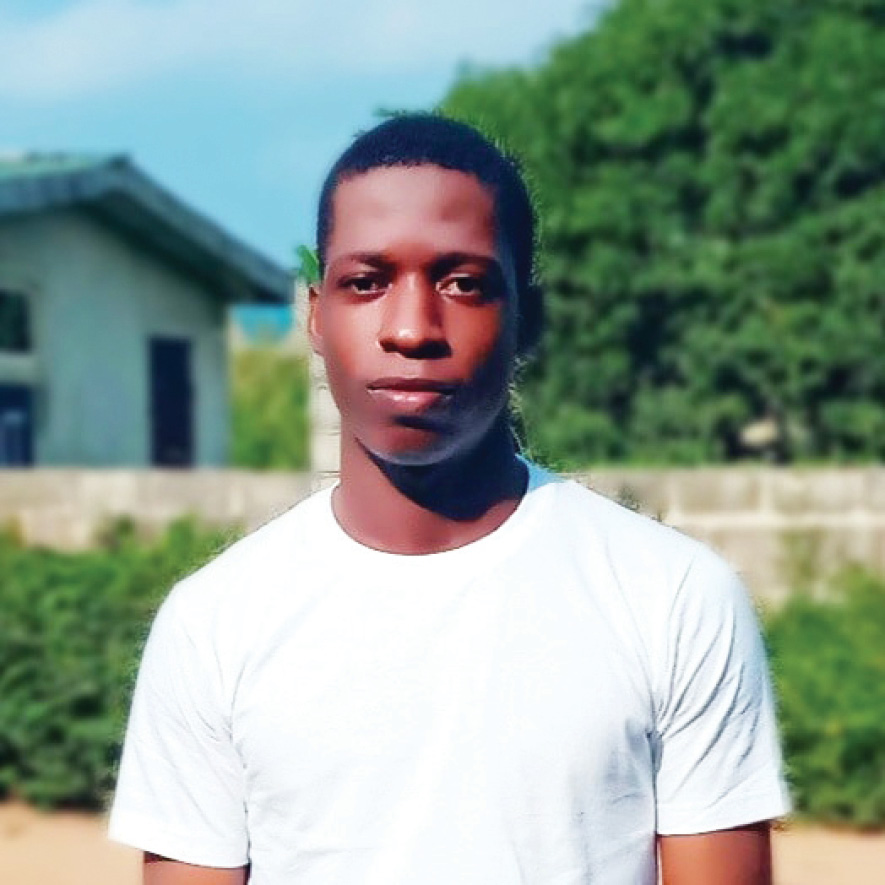Timi Sanni is a writer and Muslim literature advocate currently undergoing his undergraduate studies at Lagos State University, Nigeria.
He is an editor for Kalopsia Literary and Upwrite Magazine, recently won the SprinNG Poetry Contest 2020, and is the recipient of the Fitrah Review Prize for Fiction 2020.
Here, he talks about his award-winning work, his growth as a creative, and more. Excerpts:
Bookshelf: Your poem, ‘Bitter roots’, won the SprinNG Poetry Contest 2020. How did it come to you? Was there a particular incident that inspired you to write about mothers?
Timi Sanni: I wrote it in 2018 and submitted an earlier version to literary magazines prior, but it was rejected multiple times before winning this contest two years later.
I wanted to write about struggles and what resonated deeply with me at that time, and still does, was the struggles of mothers.
- Platform seeks essays, poems on the loss of a child
- SALAM: (A Poem for Peace Dedicated to the Victims of Violence in Nigeria)
I can’t say there was a particular incident that made me write about mothers because really, it is an array of experiences.
But what made me write about them the way I did was reliving the struggles of my own mother in nurturing her children’s dreams and knowing that this experience was in fact, a shared experience.
It is a tribute to every mother and a reminder to the world of their unnoticed struggles.
Bookshelf: You also emerged winner of the second edition of Fitrah Review Ramadan Writing Contest 2020 for your story ‘Seeking Salvation in a River’. What inspired that story and how did you feel when you won the first prize?
Sanni: ‘Seeking Salvation in a River’, like most of my other stories, is an attempt to educate.
It was inspired by the lives of many people I have met who, instead of seeing hardship, as trial, lose their faith and go looking for salvation in the wrong places.
I was elated when I got the news that I won the contest.
I woke up that morning to a phone call from one of my friends who was practically screaming in joy as she gave me the news.
I felt honoured to have written a story worthy of winning the contest.
The first step to winning any writing contest is simply writing and submitting your work, and I’m glad I did that.
Bookshelf: In addition to these two awards, you became first runner-up, Splendours of Dawn Poetry and Short Story Contest 2020. How would you say winning awards has impacted on your journey as a writer so far?
Sanni: It’s easy to say that prizes and awards do not make writers, because they don’t.
But writing is a solitary activity and writers aspire to have their works read widely and related with.
Winning contests has a way of validating these struggles.
In my writing journey so far, it has been a reminder that I can achieve even bigger dreams if I set my heart to it.
Bookshelf: Your story, ‘Serenity’, was featured in the anthology of short stories, ‘Rather Quiet’, with language as the general theme. What was it like working on your piece?
Sanni: ‘Rather Quiet’ Issue Four is an anthology of short stories, poetry, nonfiction and art.
Like with most of my stories, the hardest part was coming up with the premise.
I already had the whole idea of what I wanted to write.
I only had to weave a story around it, and once I did that the actual writing process went on smoothly.
Then came the last and most critical aspect, editing the story.
Many would tell you never to submit a first draft, and this is one of the things every writer should know.
I had to cut off parts I really liked because they were unnecessary to the story.
I also read aloud to get the flow and restructured some of my sentences to this effect.
I wrote about the mystery of language, about how the worth of a language isn’t only in understanding it, and how sometimes you resonate with songs or recitations in a language you do not understand.
Bookshelf: How did your journey as a writer and poet begin?
Sanni: I began writing when I was about seven years old.
I read almost every book I could find at home or get from my friends at school.
Examples are ‘Treasure Island’, ‘The Mayor of Casterbridge’, and ‘Romeo and Juliet’, which I didn’t understand much at that time.
I was fascinated with books and had an imagination that ran wild, so I began writing my own stories.
Most of the poems I was exposed to at a young age didn’t hold much for me so I began to write poetry at a much later age when I discovered free verse.
I got my first poetry publication on Nantygreens in 2018.
My parents bought me books occasionally and encouraged my love for writing and I’m grateful for this.
Bookshelf: What are you working on at the moment?
Sanni: I’m currently working on a Muslim fiction novel that blends and bends across various other genres, including mystery and thriller.

 Join Daily Trust WhatsApp Community For Quick Access To News and Happenings Around You.
Join Daily Trust WhatsApp Community For Quick Access To News and Happenings Around You.


